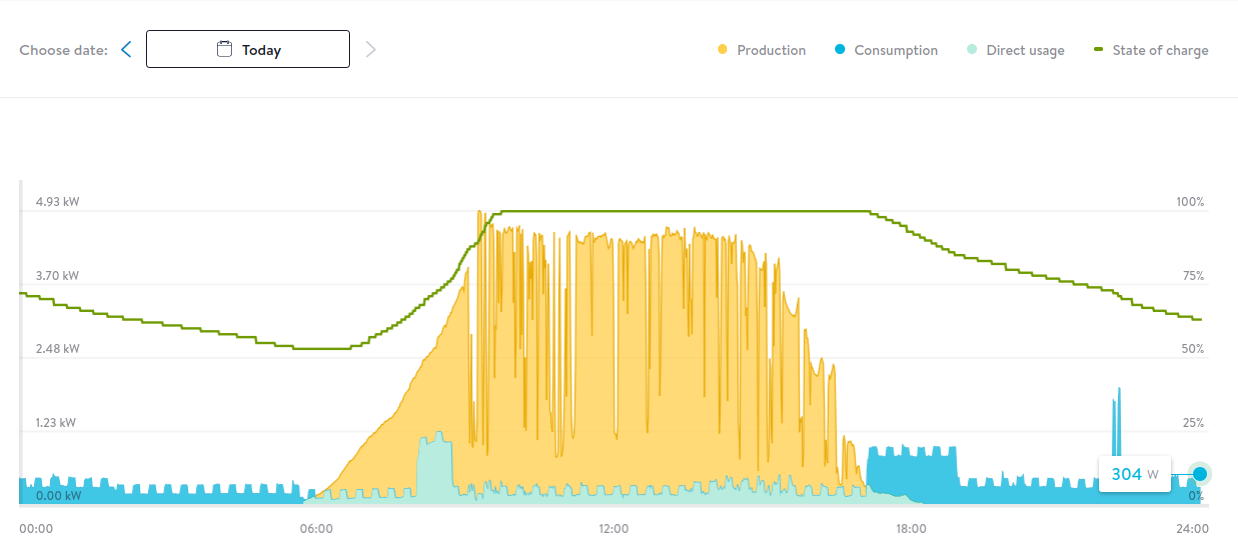Yep sorry I'm in Aus not Canada, they're a local manufacturer (https://reclaimenergy.com.au/), expensive as hell but felt like showing my support to at least one of the few places this still does engineering in Australia
How is that heat pump treating you
Really good! the separate compressor from the tank makes it whisper quiet, can barely hear it even if you're a foot away, co2 which is the most environment friendly refrigerant, and power usage is well, minimal, only a small 160L tank because I live by myself, can see example of what it uses here (it's the light blue bit at around 8am in the morning):

That said it is summer here in Queensland, will have to see how it goes in winter but under 1kw a day for hot water, that's really not bad at all imo
Yep and it looks like China is well on its way to being independent of the USA in the AI arms race, I just saw they are pushing out their own GPU models:
https://wccftech.com/chinese-gpu-manufacturers-push-out-support-for-running-deepseek-ai-models-on-local-systems/
Gotta say between them going all out on renewables reducing their reliance on oil and gas and all in on EV's and tech, it really feels like China has just stolen all of the EU's ideas and is straight up beating them over the head with it :(